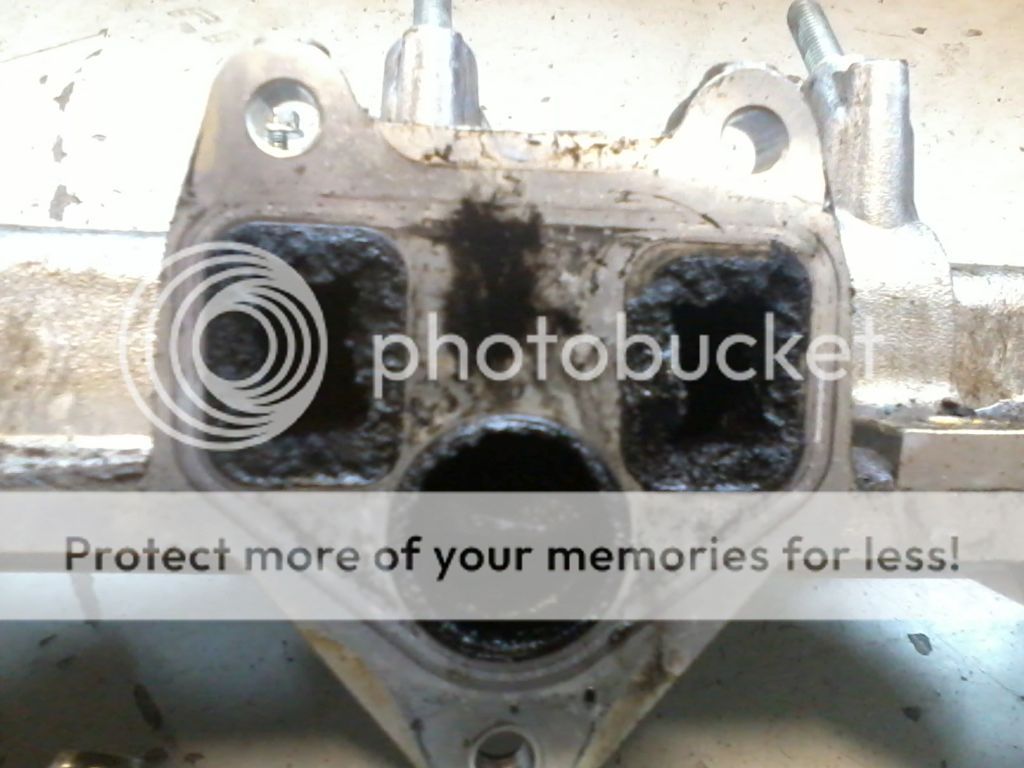Originally Posted By: Uber_Archetype
Originally Posted By: UltrafanUK
The maintenance requirement for an EGR equates to around 30 mins labour about every 50 to 100K...
Get a quote from your dealer or local indy shop. And it varies by vehicle - quite a bit, actually - for something that should not be required AT ALL. The cost for REPAIRING a gunked-up intake on some vehicles can run into the thousands of dollars.
Originally Posted By: UltrafanUK
An EGR only causes a small increase in the soot loading of the oil and as long as the oil is changed at a sensible interval...
Once again, a non-specific, basically useless comment. Soot-loading is not an issue, EGR or not.
Originally Posted By: UltrafanUK
.. based anti wear additives, unless you use expensive oil additives like Ceratec.
So... what's your point? EGR is not a lube OR oil-related issue.
Originally Posted By: UltrafanUK
There is no change in the performance of the engine unless...
Uh, wrong again buddy. Track the MPG on a car with the intake tract slowly narrowing over thousands of miles and years. You don't notice it unless you actually ARE tracking it, or until a CEL illuminates because of about a half dozen other potentially related failures starting to come into play.
Originally Posted By: UltrafanUK
If you are interested in engine life expectancy, whilst it is important to use a good oil and filter...
Again, it's not about lube. It's about the millions of vehicles that get junked every year because people are fed up with the maintenance hassles, a good portion of which are emission-related SNAFU's.
An EGR does not gunk up an intake, the intake shutoff valve will get dirty anyway, although that takes a long time and it can be cleaned with a spray in cleaner.
If you read my post correctly, I did point out that soot loading was not a real issue. The EGR does have a minor effect on oil (Slight increase in TBN loss and insolubles), but that is taken into account in the max recommended oil change intervals and anyone doing extended OCI's like myself bases their decisions on a UOA anyway. So it does not matter.
Even a fouled up EGR will not damage an engine and no one junks a car or truck just because they can't be bothered to get the EGR cleaned. The same can't be said of a DPF system, as that is far more expensive to replace.
I agree that the MPG figures will suffer if you don't clean the EGR, but the same can be said about many service related items.
Originally Posted By: UltrafanUK
The maintenance requirement for an EGR equates to around 30 mins labour about every 50 to 100K...
Get a quote from your dealer or local indy shop. And it varies by vehicle - quite a bit, actually - for something that should not be required AT ALL. The cost for REPAIRING a gunked-up intake on some vehicles can run into the thousands of dollars.
Originally Posted By: UltrafanUK
An EGR only causes a small increase in the soot loading of the oil and as long as the oil is changed at a sensible interval...
Once again, a non-specific, basically useless comment. Soot-loading is not an issue, EGR or not.
Originally Posted By: UltrafanUK
.. based anti wear additives, unless you use expensive oil additives like Ceratec.
So... what's your point? EGR is not a lube OR oil-related issue.
Originally Posted By: UltrafanUK
There is no change in the performance of the engine unless...
Uh, wrong again buddy. Track the MPG on a car with the intake tract slowly narrowing over thousands of miles and years. You don't notice it unless you actually ARE tracking it, or until a CEL illuminates because of about a half dozen other potentially related failures starting to come into play.
Originally Posted By: UltrafanUK
If you are interested in engine life expectancy, whilst it is important to use a good oil and filter...
Again, it's not about lube. It's about the millions of vehicles that get junked every year because people are fed up with the maintenance hassles, a good portion of which are emission-related SNAFU's.
An EGR does not gunk up an intake, the intake shutoff valve will get dirty anyway, although that takes a long time and it can be cleaned with a spray in cleaner.
If you read my post correctly, I did point out that soot loading was not a real issue. The EGR does have a minor effect on oil (Slight increase in TBN loss and insolubles), but that is taken into account in the max recommended oil change intervals and anyone doing extended OCI's like myself bases their decisions on a UOA anyway. So it does not matter.
Even a fouled up EGR will not damage an engine and no one junks a car or truck just because they can't be bothered to get the EGR cleaned. The same can't be said of a DPF system, as that is far more expensive to replace.
I agree that the MPG figures will suffer if you don't clean the EGR, but the same can be said about many service related items.
Last edited:


